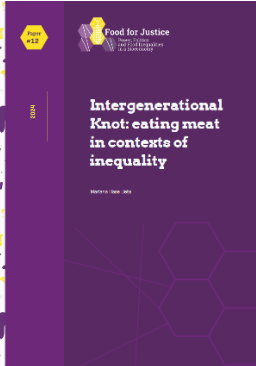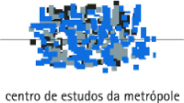About us
Food for Justice was a Junior Research Group based at the Heidelberg Center for Ibero-American Studies at Heidelberg University. It was funded by the German Federal Ministry of Education and Research (BMBF) from 2019 until 2025.
Food for Justice looks into social mobilization targeted at injustices in the food system and into social and political innovations that address inequalities undermining food security such as class, gender, race, ethnicity, nationality. Food for Justice aims at providing a theoretical and conceptual framework – grounded on empirical research – to analyze social and political initiatives that address inequalities based on class, gender, race, ethinicity, rurality, citizenship, and categorical divisions between humans and more-than-humans, thus building ecological, just, and democratic food politics.
Context
Increasingly, citizens perceive the global food system as part of the historical causes of the ecological crisis and persisting hunger in the world. Reasons for these causal links have long been known, such as the use of food for profit, the gap between production and consumption, conflicts over land and water, exploitative labor relations, the energy matrix, and waste generation, among others. Nevertheless, research on food security and the bioeconomy tend to rely on the same solutions, i.e., searching for technological fixes toward a profit-oriented model that exploits living matter.
To complexify the debate and contribute to socio-environmental transformation, more knowledge about which food system citizens desire is needed. Further, it is important to explore which alternative knowledge and technologies already successfully handle such claims for Justice within food politics and how to redirect public policies towards a just, democratic, and ecological food system.
-
The Junior Research Group Food for Justice investigates the inequalities and justice issues in global food systems, focusing on citizens’ desired food systems, existing solutions, and how to redirect policies towards fairness, democracy, and sustainability, with case studies from Europe and Latin America.

-
International Workshop Food for Justice 2024
The 2nd International Workshop Food for Justice, held on July 23-24 in Heidelberg, Germany, gathered researchers and activists to explore the political potential of food for societal transformations.
Click here for more information.
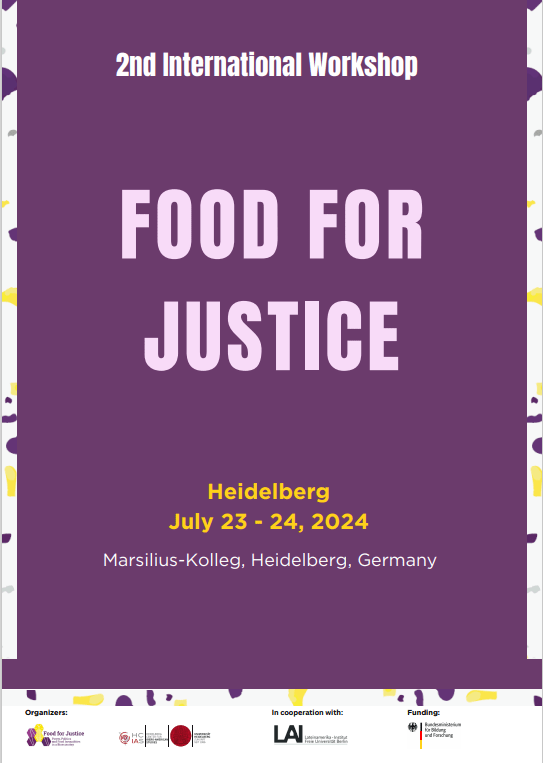
-
International Conference: “Climate Change and Social Sciences – What’s going on? What’s to be done?”
The conference took place at the Latin American Institute at Freie Universität Berlin from February 2 to February 4, 2023, and gathered researchers and activists to explore different debates around climate change and societal transformations in social sciences.

-
Marco Antonio Teixeira and Renata Motta have published an article in the International Journal of Politics, Culture, and Society based on their research with rural popular feminist movements in Brazil, and in particular, the coalition Marcha das Margaridas.
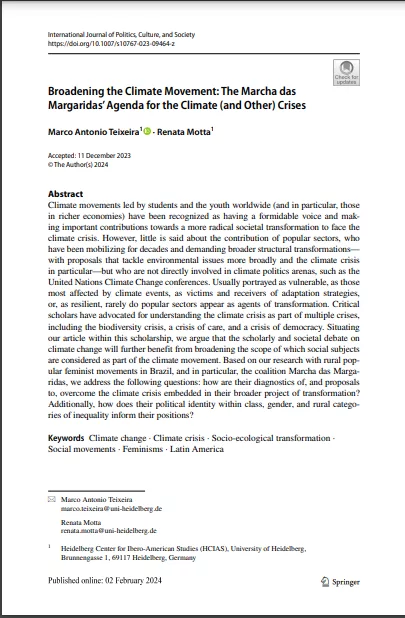
-
New publication by Renata Motta and Marco Antonio Teixeira!
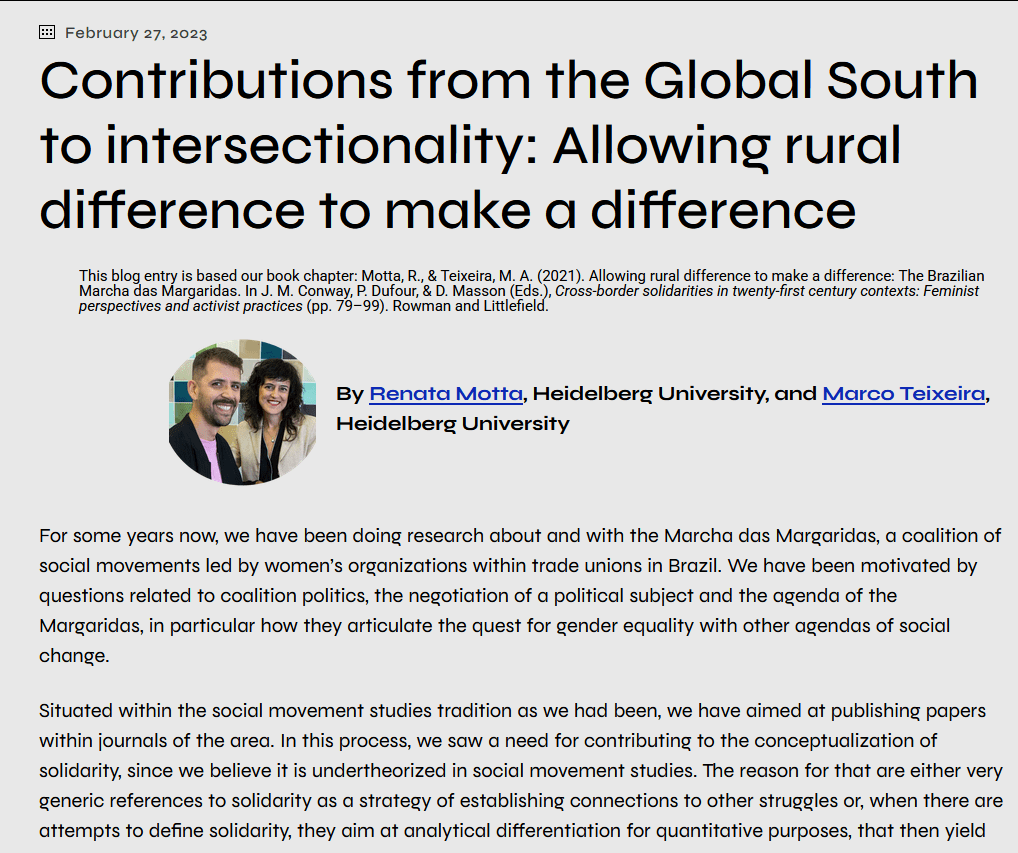
-
New article by Marco Antonio Teixeira and Aline Borghoff Maia in the Sociological Review
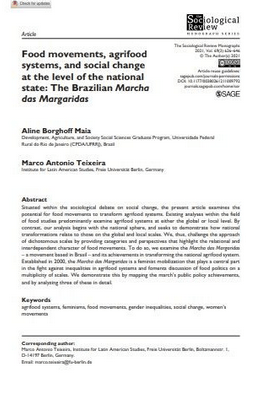
-
New article by Renata Motta in the Sociological Review
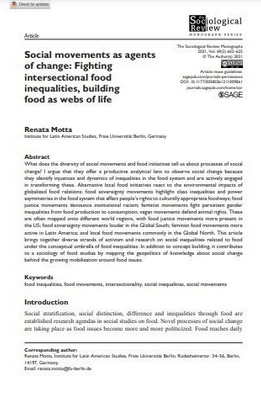
-
Working Paper 13: Food Initiatives by FARC Ex-Combatants: Promoting Peacebuilding and Strengthening Urban-Rural Linkages in Colombia by Felipe Hérnandez Crespo
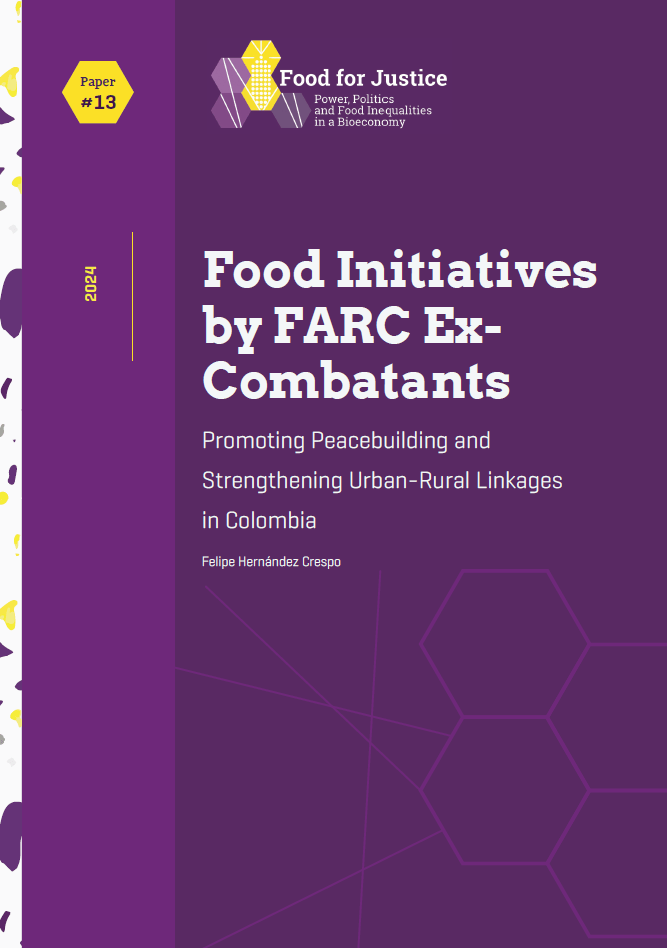
-
Working Paper 12: Intergenerational Knot: eating meat in contexts of inequality by Mariana hase Ueta
